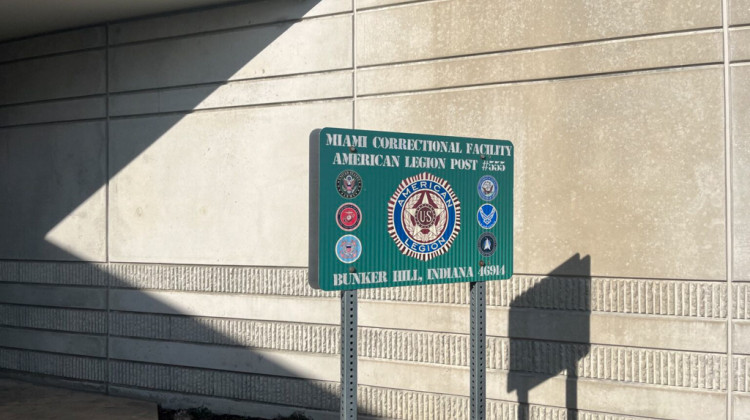As the Trump administration intensifies immigration enforcement through executive actions, including expanded expedited removals and increased cooperation with state agencies, tools like "Know Your Rights" red cards have become a visible resource for immigrants during encounters with authorities.
What are red cards?
The red cards were designed to help people stand up for their Constitutional rights, especially during encounters with immigration agents. They explain what those rights are and clearly signal to officials that the person is choosing to assert them. Red cards are printed with rights that are afforded to all people — not just citizens — under the U.S. Constitution.
The cards can be presented during encounters with immigration enforcement, including Immigration and Customs Enforcement, or ICE, which operates under the Department of Homeland Security to detain and deport immigrants per federal policy.
Other federal agencies also participate in enforcement activities, including U.S. Customs and Border Protection, the U.S. Marshals Service, the Drug Enforcement Administration, the Bureau of Alcohol, Tobacco, Firearms and Explosives, and the Federal Bureau of Prisons.
At 2 inches by 3.5 inches, the cards are designed to fit in a standard wallet.
The Immigrant Legal Resource Center created them in 2007 after coordinated ICE raids in workplaces. The organization is a national nonprofit that advocates for the civil rights of immigrants. It also works to educate and equip the legal community, immigrants and others with resources.
The cards are manufactured by Printed Union, a printing company based in San Jose, California.
The cards are not intended to function as legal advice. People with questions about a specific situation should contact an immigration attorney.
What rights do they include?
The ILRC describes the cards as a tool that provides “critical information on how to assert these rights, along with an explanation to ICE agents that the individual is indeed asserting their rights.”
The cards list several rights afforded to all people under the Constitution, including:
- The right to refuse entry to immigration agents, who are not allowed to enter residences unless under very specific circumstances
- The right to remain silent in response to questions from an immigration agent
- The right to speak with a lawyer before signing anything.
Additional advice on the cards includes what to do if approached by an immigration agent in public or at your workplace: “Ask the agent if you are free to leave and if they say yes, leave calmly.”
The ILRC also suggests giving the card to the immigration agent. In the event that a person is inside their home, it says to show the card through a window or slide it under the door.
They include a script
The cards include a script in English for a person to read aloud or show to an immigration agent in an encounter:
I do not wish to speak with you, answer your questions, or sign or hand you any documents based on my 5th Amendment rights under the United States Constitution.
I do not give you permission to enter my home based on my 4th Amendment rights under the United States Constitution unless you have a warrant to enter, signed by a judge or magistrate with my name on it that you slide under the door.
I do not give you permission to search any of my belongings based on my 4th Amendment rights.
I choose to exercise my constitutional rights.
What languages do they come in?
The dual language cards are printed in English on one side and available in 18 different languages on the other side: Amharic, Arabic, Chinese, Farsi, French, Haitian Creole, Hmong, Khmer, Korean, Pashto, Portuguese, Punjabi, Russian, Spanish, Tagalog, Tigrinya, Ukrainian and Vietnamese. There is also an all-English version.
How can I get red cards?
Currently, the organization is not accepting orders from organizations and nonprofits for free cards as it works through a backlog. When accepting them, ILRC absorbs the cost of these orders.
The cards can still be downloaded for free from the ILRC website and printed on your own printer.
They can also be purchased from redcardorders.com in quantities ranging from 100 to 20,000. The cost covers production and is mostly for businesses, attorneys and bulk orders of over a thousand cards.
Some local immigrant rights organizations may distribute red cards.
There was a shortage earlier this year
Demand for red cards spiked and resulted in a shortage around President Donald Trump’s inauguration. As of late February, the organization had received over 9 million orders — more than the previous 17 years combined — since the November 2024 presidential election. In response, ILRC paused the order form for nonprofits.
Is there still a shortage?
The ILRC said in late May that it was planning to reopen nonprofit orders soon. It’s working on revamping the form and making the ordering process more efficient.
“We’re currently finalizing a few items — specifically resolving some technical issues which could be added to prevent bot submissions,” Donna De La Cruz, communications director, said.
For businesses, attorneys and bulk orders, the website says current processing time is 5-7 business days after placing an order and that there are different shipping methods and delivery options available.
What’s happening with immigration in Indiana?
On Jan. 28, Gov. Mike Braun issued an executive order directing multiple state law enforcement agencies to cooperate with federal authorities. The named state law enforcement agencies include: the Indiana State Police, Indiana State Excise Police, the law enforcement division of the Indiana Department of Natural Resources, correctional officers with the Indiana Department of Correction, the enforcement agents of the Indiana Gaming Commission and the Indiana Intelligence Fusion Center.
Local law enforcement agencies may or may not cooperate with the federal government. Some sheriff’s offices and municipal police departments may also have formed agreements with federal agencies. Others have said they will not participate in federal immigration enforcement, such as the Indianapolis Metropolitan Police Department.
WFYI is reporting on the local impacts of immigration policy. If you want to share your story or have a tip, contact WFYI reporter Zak Cassel at zcassel@wfyi.org.
 DONATE
DONATE








 Support WFYI. We can't do it without you.
Support WFYI. We can't do it without you.